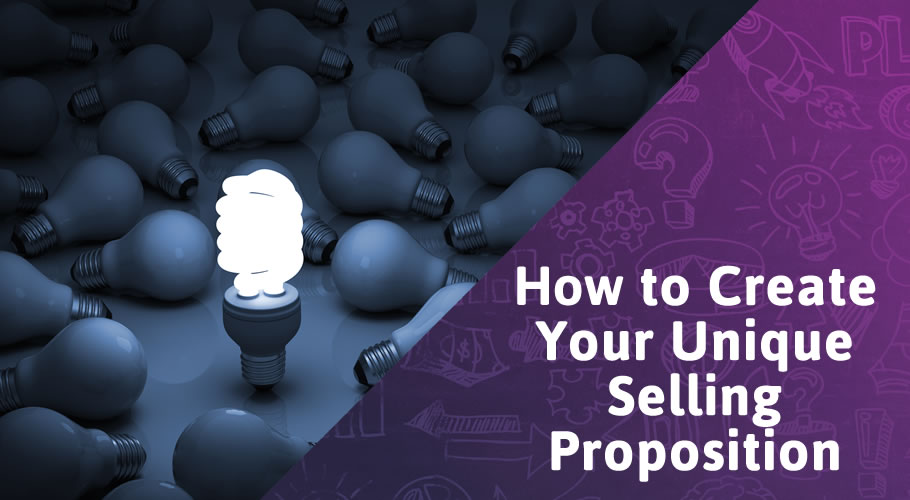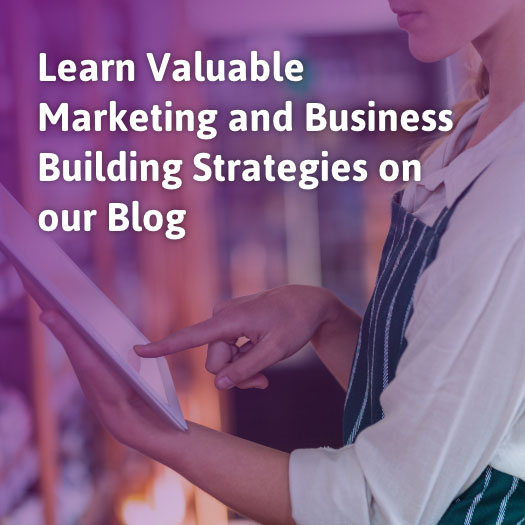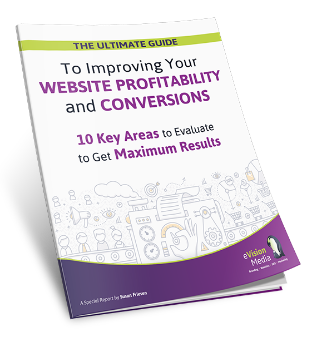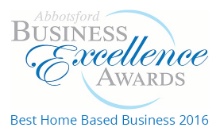If you don’t build brands for a living, you may be under the impression that there’s no difference between a tagline and a slogan.
After all, they are somewhat similar, and the terms tagline and slogan tend to be used interchangeably.
If you were to go back several years and ask me this question, even I might not have known how to explain the difference.
But as I’ve found out over more than 20 years of helping business owners build their brands, there is a significant difference between a tagline and a slogan.
What’s more, I’ve learned that to create the best tagline and/or slogan for your business, and ensure you’re using these elements to their fullest potential, it’s important to understand the differences between them.
So, if you’re interested in using taglines and slogans in branding, and want to know the best practices for writing a slogan or tagline, how these elements can benefit your business, and how they differ, then keep reading to learn more.
Read: Crafting a Unique Selling Proposition: Unleashing the Power of Your Brand

Your unique selling proposition (USP) is incredibly important for the creation of slogans and taglines, as it helps you to communicate why consumers should choose to do business with you instead of your competitors.
With that in mind, if you want to come up with an effective tagline or slogan, first you’ve got to define what’s unique about your brand.
This article explains everything you need to know to craft a USP, including what a USP is, the benefits of having one, and how you can create one of your own.
How Can Taglines and Slogans Benefit My Business?
If you want to know the difference between a tagline and a slogan, you’re probably already thinking about using them.
But you might be on the fence about how beneficial these elements actually are and wondering if creating them is even worth your time.
That being said, here’s how the use of taglines and slogans can benefit your business:
Brand Identity and Recognition
Taglines and slogans are a key part of developing a memorable brand identity.
A catchy, unique phrase can become synonymous with your brand, embedding it in the minds of consumers.
For instance, Nike’s “Just Do It” encapsulates a spirit of determination and resilience that is instantly recognizable.
This association helps enhance brand recognition, making it easier for customers to remember and choose your brand over competitors.
Cost-Effectiveness
The repeated use of taglines and slogans, across various branding and marketing materials, can provide ongoing benefits without the need for significant further investment.
This makes the use of slogans and taglines a conspicuously cost-effective component of your branding and marketing strategies.
Communicate Your Core Values and Benefits
A well-crafted tagline swiftly and effectively communicates the essence of your company’s unique selling proposition, highlighting what your brand stands for and/or the key benefits it offers.
For example, BMW’s tagline, “The Ultimate Driving Machine”, communicates quality and a superior experience, helping potential customers understand what sets this brand apart from others in just a few words.
Keep Things Consistent
Taglines and slogans can amplify marketing campaigns by ensuring a consistent message across all platforms.
Whether it’s in print, online, or broadcast form, a strong slogan reiterates the same message, reinforcing your brand’s presence and message.
This repetition makes marketing campaigns more effective as the consistency helps solidify consumers’ understanding and recognition of your brand.
Create an Emotional Connection
Slogans can evoke emotions and create a personal connection with your audience, and by appealing to feelings, slogans can make your brand feel more relatable and approachable.
For example, Hallmark’s “When You Care Enough to Send the Very Best” touches on the sentimentality of giving, which resonates deeply with consumers who want to convey affection through cards and gifts.
Differentiate Your Brand From Competitors
Having a distinctive slogan or tagline can set your brand apart from its rivals, and this is especially true in more competitive markets.
The uniqueness of a catchy slogan can be a significant differentiator, highlighting a unique selling proposition or brand philosophy that competitors do not offer.
This differentiation is crucial in crowded markets where unique features and benefits might be similar across products or services.
Make Your Brand More Memorable
Taglines and slogans are typically short, memorable, and easy to share, making them effective for word-of-mouth marketing.
And because they’re simple to remember, customers can easily mention them in conversations, which can help enhance your brand visibility and organic reach, significantly boosting your marketing efforts without additional costs.
Gain Greater Loyalty
A strong slogan or tagline can foster brand loyalty by continually reinforcing your brand’s image and message to existing customers.
This serves as a constant reminder of why they chose your brand in the first place, which can help to encourage repeat business.
For example, Apple’s “Think Different” tagline encourages loyalty among users who see themselves as creative and innovative, as their values align with the brand’s emphasis on creativity in its products.
Stay Flexible
Slogans and taglines are highly adaptable and can be used across various media and advertising platforms, from TV spots and radio to online ads and social media.
This flexibility allows you to maintain a cohesive branding strategy across all marketing channels, maximizing your reach and the impact you have on your audience.
What’s the Difference Between a Tagline and a Slogan?
The difference between a tagline and a slogan may seem like an incredibly granular thing to discuss, but if you own a business, it’s important to understand the distinction.
Having said that, I should start by pointing out that the main difference between the two is how they’re used.
In a nutshell, taglines are used more for brand positioning, and slogans tend to be used for marketing campaigns.
A tagline will help to position your brand by associating it with the value of your offerings and what differentiates you from the competition, whereas a slogan is used to communicate the ideas of a specific marketing campaign.
But it’s not necessarily that cut and dried, and there’s still some overlap.
For instance, Nike’s famous tagline, “Just Do It”, which I mentioned above, was developed as part of the company’s first major TV advertising campaign, but it quickly became so popular that Nike started using it as a tagline, and it’s still their tagline to this day.
So, as you can see, taglines and slogans do have some similarities, but if you want to use them to their fullest potential, it’s important to understand their purpose and the differences between them.
With that in mind, here are the key differences between a tagline and a slogan:
Definition and Purpose
Taglines are permanent phrases associated with your company as a whole, and they’re designed to be timeless and typically do not change very often.
They reflect your brand’s identity, values, and overarching promise to customers, and their primary purpose is to enhance brand recognition and encapsulate the essence of your brand in a way that resonates emotionally with consumers.
Slogans, on the other hand, are more flexible and are typically used for a particular marketing campaign or a specific product or service.
They aim to highlight features, benefits, or the uniqueness of what’s being advertised, and they may change frequently to align with different marketing initiatives.
Duration and Usage
Taglines are long-term and remain consistent across all marketing and branding materials.
And because they’re intended to last, taglines help maintain a consistent brand message over time.
A well-known example is Disneyland’s “The Happiest Place on Earth”, which consistently reinforces the brand’s association with joy and magical experiences.
Slogans are short-term tactical tools used to draw attention to specific aspects of a product or highlight a promotion, and they often vary depending on your current marketing goals or target audience.
For instance, McDonald’s has used various slogans like “I’m Lovin’ It” as a tagline, but also campaign-specific slogans like “The Simpler the Better” for their advertising.
Emotional vs. Rational Appeal
Taglines often aim to create an emotional appeal and are crafted to resonate on a deeper level, building a connection between your brand and consumers that transcends the features of specific products or services.
This emotional resonance helps build brand loyalty and long-term customer relationships.
Slogans, on the other hand, tend to be more rational or directly informative, focusing on the practical benefits or features of a product, service, or promotion.
They are designed to be persuasive and drive immediate consumer actions, such as purchases or inquiries, and they’re often surprisingly straightforward, making them effective for conveying specific sales messages.
Branding vs. Advertising
Taglines are a core component of branding, as they help form the public perception of your brand and are integral to your brand’s voice and personality.
They’re something customers will remember even when they aren’t actively thinking about making a purchase.
Slogans, on the contrary, are primarily used in advertising and are crafted to be catchy and memorable for the duration of a campaign, aiming to maximize impact in a shorter timeframe.
They support specific marketing objectives and are often geared toward generating sales or promoting awareness of a new product.
Strategic Implications
The strategic use of taglines involves embedding them into the fabric of your brand.
That means every interaction with your target audience should reinforce the message conveyed by the tagline, thereby solidifying your brand positioning and emotional appeal.
For slogans, the strategy revolves around flexibility and adaptability, utilizing different messages to highlight specific aspects of a product and/or service, as needed.
This adaptability allows you to respond quickly and effectively to changing market conditions and consumer preferences.
Need help crafting effective taglines or slogans? Why not set up a free 30-minute consultation with me to find out what we can do for you?
To your business success,
Susan Friesen
P.S. If you liked the article, you might want to subscribe to our newsletter. We publish tons of valuable content to help you learn more about marketing, and subscribing is the best way to ensure you don’t miss out. Additionally, if you’d like to learn more about building a search engine optimized website, click here for our free website guide.







